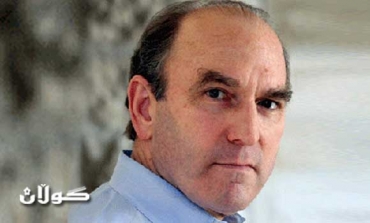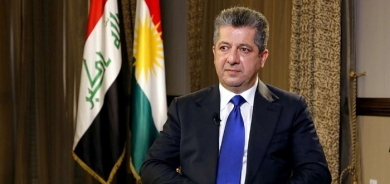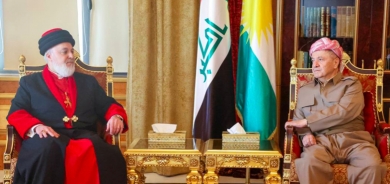Elliott Abrams to Gulan Magazine: A decision by several countries not to tolerate more killing by Assad, this would surely involve the United States, the EU, the Arab League, and Turkey
February 23, 2012
Exclusive Interviews

Elliott Abrams is an American attorney and conservative policy analyst who served in foreign policy positions for two Republican U.S. Presidents, Ronald Reagan and George W. Bush. Abrams held many roles within the affair, some official and unofficial. This included working with CIA operations that got the U.S. onboard with the illegal shipment of arms and supplies. He is currently a senior fellow for Middle Eastern studies at the Council on Foreign Relations. Additionally, Abrams holds positions on the Committee for Peace and Security in the Gulf (CPSG), Center for Security Policy & National Secretary Advisory Council, Committee for a Free Lebanon, and the Project for the New American Century. He also was the president of the Ethics and Public Policy Center in Washington in 1996. Abrams is a current member of the U.S. Holocaust Memorial Council. He teaches foreign policy at Georgetown University with a blog called “Pressure Points” that is about the U.S. foreign policy and human rights.We; as Gulan Magazine, requested an exclusive statement from The Council on Foreign Relations to our magazine regarding to the current situation in Syria, and with many thanks, gratitude and appreciation to Rachel Steyer a research associate at The Council on Foreign Relations, she helped us delivering our questions to the Professor Abrams and the following are the Professor Abrams’ answers to Gulan Magazine:
* The violence by the Syrian regime against its people is reaching the level of genocide; this comes after Assad's promise to the Foreign Minister of Russia to stop the violence. So, the question in here is that; why Assad is applying genocide on its nation?
- The only way Assad can hold on to power is through brute force, and a lot of it. His government is totally illegitimate and the great majority of Syrians want it to fall.
* Assad's regime has started to destruct the sources to the public service of water and electricity. That faces the people with a disaster in this cold winter, so; till when the international community is accepting this violence?
- The international community is reacting far too slowly. As often happens, the levels of death and suffering have to grow and grow before people are willing to act. And in this case, UN action has been delayed and blocked by Russia, Syria’s ally.
* International community is to agree to let Assad peacefully leave the authority, and Russia tries to persuade Assad to step down. So, to what extend Russia is able to do that so?
- Russia can block UN action, but cannot block a coalition of the willing that may form from Arab League states and Western countries. Russia could be very useful in pushing Assad to step down, but I have seen no real evidence that it is doing so.
* The whole world is reaching the fact that the Syrian regime neither can make reforms nor can step down from the authority. So, how is it possible to rescue the Syrian nation in this situation?
- In my view it is time to help the opposition in Syria—not with speeches but with concrete assistance: money and guns. They cannot defend themselves with our speeches and our good wishes.
* Many observers expect to have international community to intervene by military means in the Syrian case, but still none of China and Russia can be trusted. So, when international community will be able to take any decision by majority votes?
- Any international action not reflect a UN vote or majority rule, but a decision by several countries not to tolerate more killing by Assad. This would surely involve the United States, the EU, the Arab League, and Turkey.
* There are more than 2 million Kurds in Syria which are not yet recognized by either the regime or the opposition. Do you think if there is a risk of Assad trying to use the Kurds in this situation?
- It is possible. He would certainly not hesitate to use the Christian, Druze, or Kurdish populations to advance his interests. I would hope that these minority groups would talk with each other now and form a kind of united front, demanding that Assad leave and that any successor government (presumably Sunni-led) pledge itself absolutely to reflect minority rights.
* Last Question: To what extend the change of Assad's regime will impact on the whole area?
- The fall of the Assad regime will be a great benefit to the Syrian people, and the two great losers will be Hizballah and Iran. The “inevitable” rise of Iran will no longer look so inevitable, and Hizballah will have lost the route through which its arms come.















